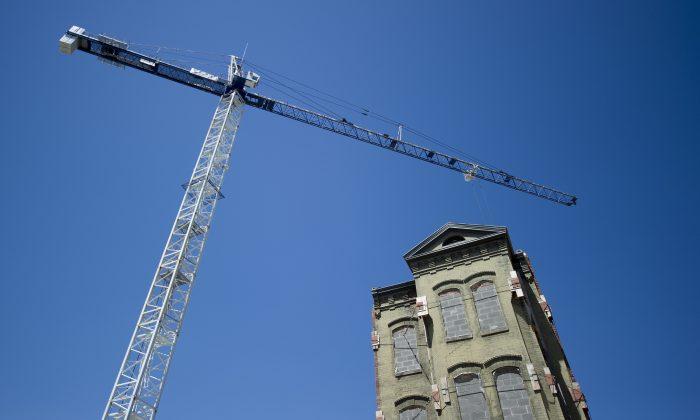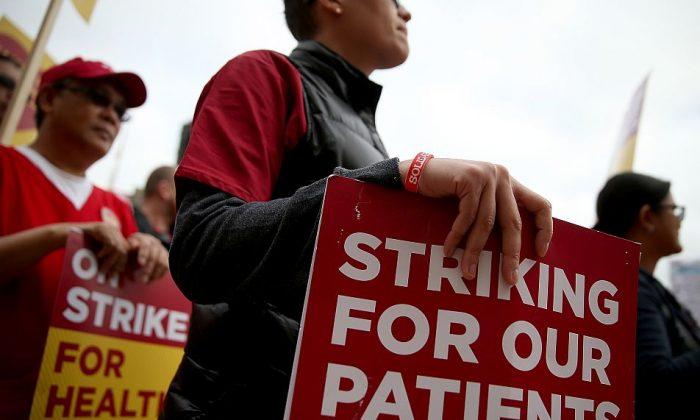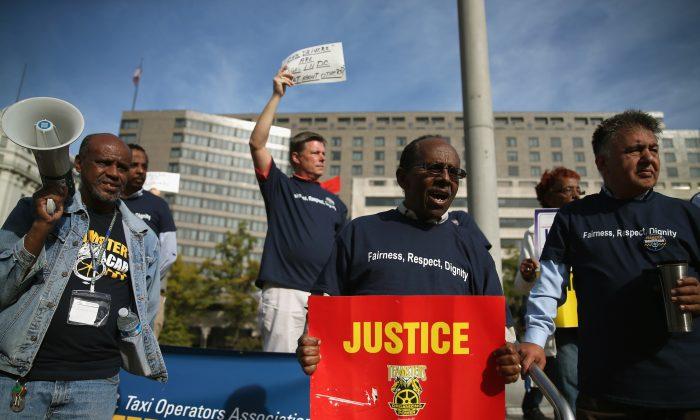“Even before the global financial crisis, the retirement outlook for Americans was grim,” Beth Almeida, executive director of the National Institute on Retirement Security (NIRS) said in a recent statement. “This month, millions of workers and retirees are opening their individual retirement account statements and likely feeling that their retirement aspirations are an unattainable fantasy.”
“Our year-end results make obvious what most [investment] advisors feared—that their clients’ retirement security has been severely jeopardized by ongoing market deterioration,” John Coyne, president of Brinker Capital, a management consulting firm based in Pennsylvania, remarked in a recent press release.
Over 62 percent of those surveyed said that the current economic recession, stock market losses, diminished retirement accounts, children in college as well as procrastination in opening retirement accounts are forcing them to stay at their jobs. In addition, Americans have become more risk-averse in choosing investments, Brinker found.
Around 40 percent of those surveyed are dipping into their 401(k) tax-deferred retirement accounts to pay bills, according to Ladders.com.
Many people are cutting back on vacations, eating out, and other leisure or entertainment expenses.
“Simply having enough money to pay bills or meet basic needs,” is on the wish list of more than 50 percent of survey respondents on a recent NIRS survey.
Rebuild the Nest Egg
”Government should stay out of the management of 401(k)s,” 90 percent of surveyed financial advisors recommended in the Brinker survey.
But NIRS and Mathew Greenwald & Associates, Inc. found just the opposite during its recent survey release.
“Americans view providing retirement security as a shared responsibility between individuals, employers and government,” NIRS said in a recently published “Pension & Retirement Security: A Roadmap for Policy Makers” report.
The survey found that many employees believe that federal and local governments should offer different retirement tax benefit plans that foster savings towards retirement, and close to 85 percent demand that more leeway be given to employers in choosing retirement plans for their employees.
Consumer Reports National Research Center recently published a number of options for retirees and future retirees feeling the pinch, including working part time, moving to a less expensive area, resetting the retirement clock, and reducing or eliminating borrowing.
Rethinking Hirings and Firings
Some experts believe the trend of delaying retirement is a boon to organizations and businesses.
“Employers may reap unexpected benefits from experienced workers who delay retirement, as their deep knowledge and skills will remain available to the firm,” said Paul McDonald, an executive director at Robert Half.
History suggests that experienced and highly paid staff stays on the job longer during recessionary periods than in any other time. Believe it or not, replacing veteran staff with less skilled cheaper workers could become costly, given U.S. discrimination laws.
“If the delaying retirement trend becomes a reality, organizations will need to adapt their talent strategies and budgets to account for the unexpected retention of near-retirement employees,” Dick Kleinert, a Deloitte principal, said in a recent press release.
Deloitte warns of cultural problems that could arise with having larger numbers of workers from different age groups in the same organization.
“The generation gap cannot be ignored. Each generation of employees has distinct attitudes and beliefs about work, life, rewards an what motivates them along with clear preferences related to [the] workplace,” Said C. Scott Boring, International Foundation of Employee Benefit Plans president, in the Robert Half report.
Social Security in Good Shape, Relatively Speaking
“The U.S. Social Security program is in much better shape than the retirement programs of most other advanced countries,” said the Peterson Institute for International Economics in its recently released book titled “U.S. Pension Reform: Lessons from other Countries.”
While the U.S. social security benefits are no match to European benefit plans, with the exception to the United Kingdom, when it comes to moneys paid to retirees, it is less taxing on the government and taxpayers. Many European governments face a budget crisis due to their high retirement payouts and diminished tax receipts.
Also, U.S. workers typically stay longer on the job than their European counterparts, putting less stress on government and private pension plans.
“Experiences of other countries do not support an overhaul of the U.S. Social Security program,” the Peterson Institute researchers said. “The reason for most major reforms in other countries is that their pension programs were in [a] severe budget crisis and/or labor force participation was low or declining.”
“These arguments are not as compelling for the United States, where the funding shortfall is not great and employment incentives in the existing program are pretty good.”






